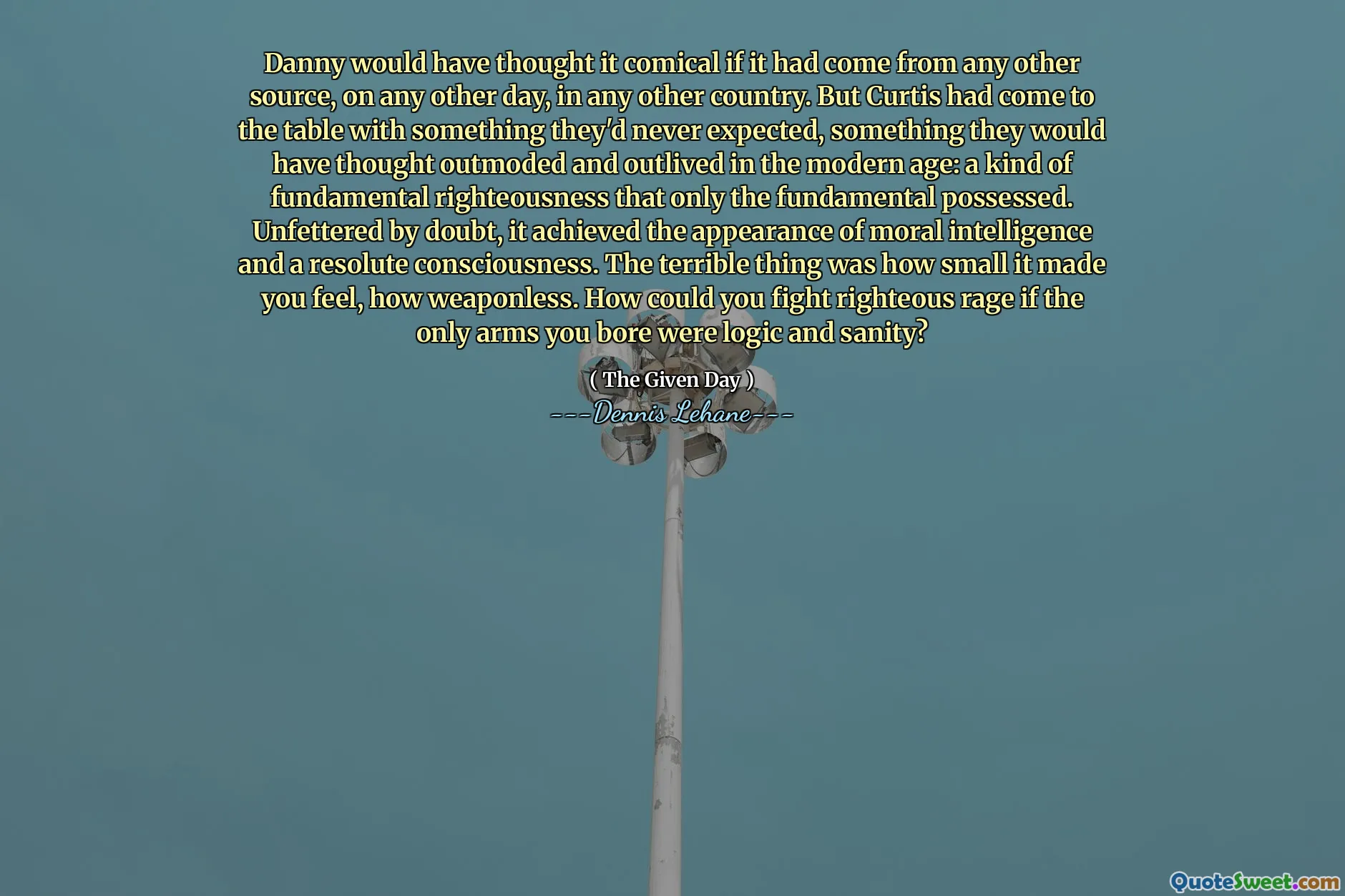
Danny would have thought it comical if it had come from any other source, on any other day, in any other country. But Curtis had come to the table with something they'd never expected, something they would have thought outmoded and outlived in the modern age: a kind of fundamental righteousness that only the fundamental possessed. Unfettered by doubt, it achieved the appearance of moral intelligence and a resolute consciousness. The terrible thing was how small it made you feel, how weaponless. How could you fight righteous rage if the only arms you bore were logic and sanity?
This quote from Dennis Lehane's "The Given Day" explores the unsettling power of unwavering conviction, particularly when it hides behind a semblance of moral superiority. It suggests that absolute certainty, devoid of doubt, can project a kind of ‘moral intelligence’ that is profoundly intimidating. The way Curtis’s fundamental righteousness is described highlights a timeless human predicament: confronting belief systems anchored in inflexible certainty. It reveals how such convictions can make even the most rational and sane individuals feel powerless, stripped of effective defenses. The passage draws a stark contrast between logic, which is open to questioning and debate, and righteous rage, which operates beyond the bounds of reason and demands submission or conflict. The emotional impact is significant because it shows the isolating effect of facing dogma—whether ideological, religious, or political—that does not invite dialogue but imposes itself with unyielding force. This snippet compels readers to reflect on the loneliness and ineffectiveness one feels when armed only with reason and sanity in the face of fervent, uncompromising belief. It also invites a broader contemplation about the challenges of engaging with people whose convictions seem unassailable, shaping how societies negotiate truth, power, and morality. Lehane’s prose subtly critiques not fundamental righteousness itself but the blindness and rigidity with which it is sometimes wielded, leaving those who value nuance and critical thought feeling vulnerable and diminished.






